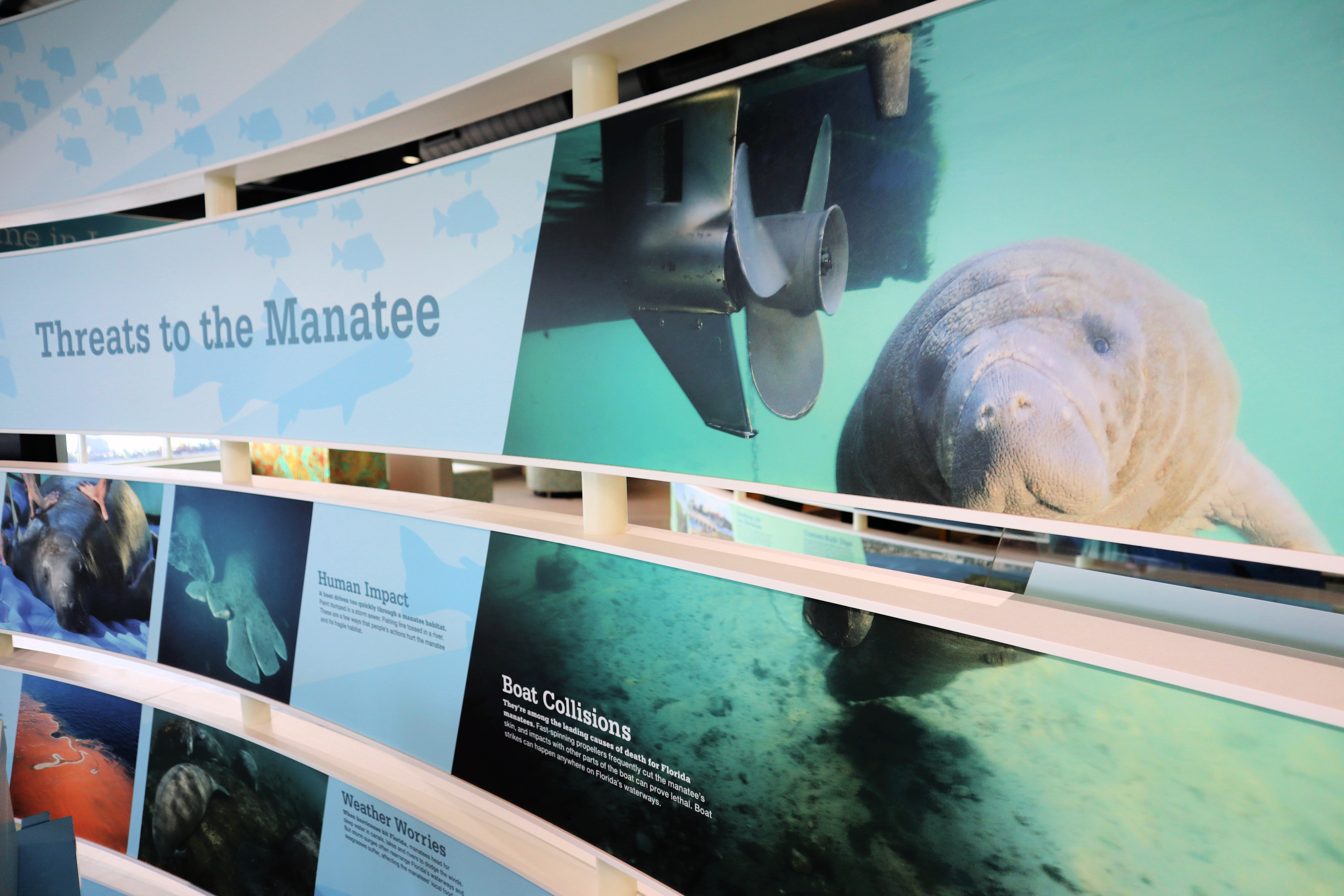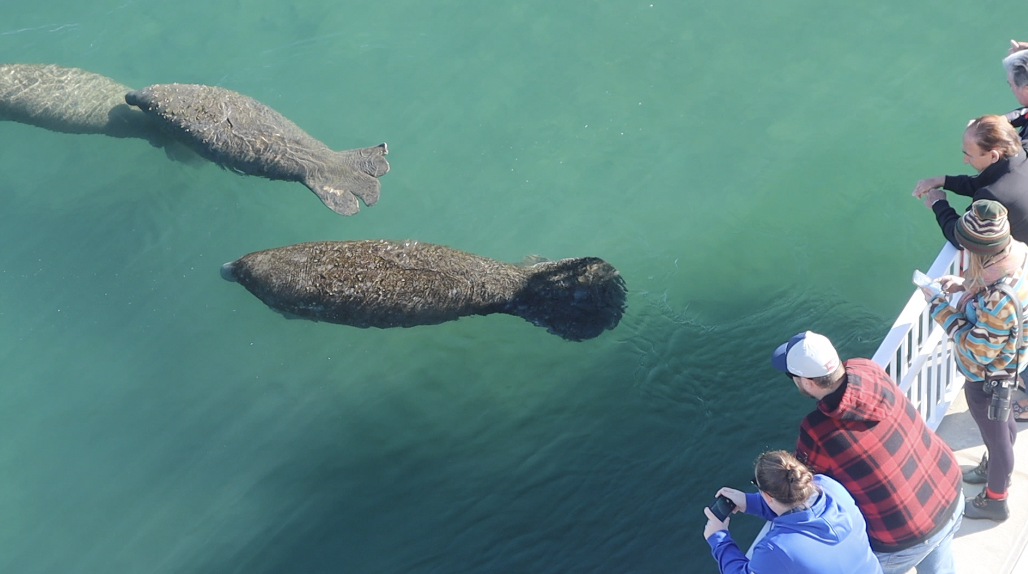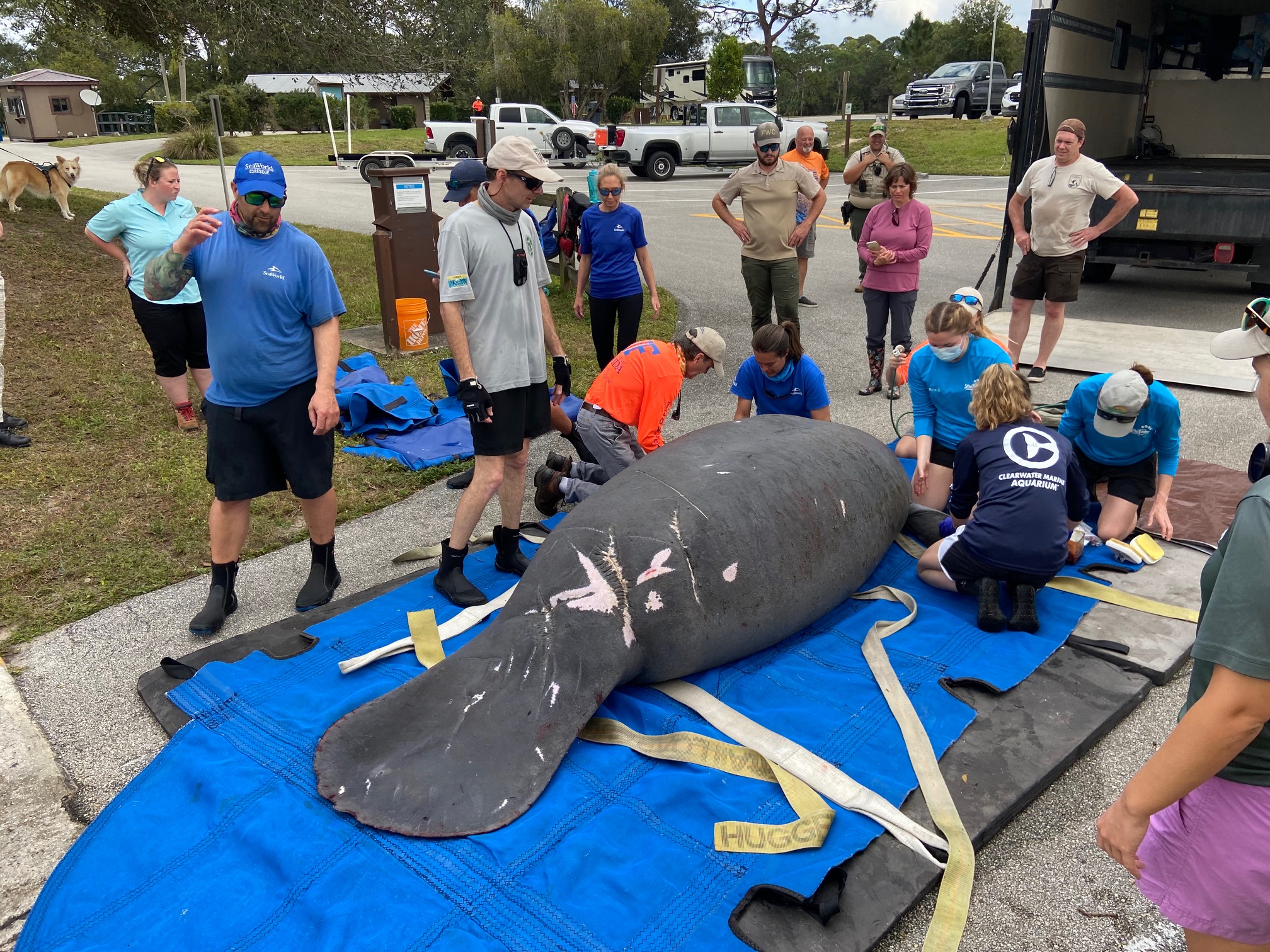Boating Safety Tips to Help Manatees

Florida is known for its magnificent waterways, which entice boaters out all year. Although boating can be an enjoyable activity for humans, there can be a heavy price paid by manatees – which frequently become victims of watercraft collisions. These slow-moving marine mammals suffer boat strikes that lead to deep wounds, internal damage and even death. Many of the manatees seen at Manatee Lagoon bear the marks of scars left by boat strikes. These unfortunate encounters, combined with an Unusual Mortality Event (UME), have taken a huge toll on the Florida manatee population.

Manatees tend to congregate in warm-water areas, such as the clean warm-water outflow of the FPL Riviera Beach Clean Energy Center adjacent to Manatee Lagoon, during the winter. But particularly in warmer weather, manatees naturally disperse from their winter habitats – so boaters will find them throughout all of Florida’s coastline and beyond, especially in Intracoastal areas, rivers, canals and nearshore shallow waters.

To help protect manatees, it is important for boaters to remain vigilant. Here are a few tips to consider:
- Wear polarized sunglasses to better see through the water and detect manatees.
- Avoid steering your watercraft in shallow areas, where manatees might be grazing on seagrass.
- Look for “manatee footprints,” which are large circles in the water which can indicate a manatee is beneath the surface.
- Obey speed limits in posted FWC seasonal manatee protection zones and no wake zones.
- Look out for manatee snouts sticking out of the water when they come up for breath.
- Never feed or give water to manatees.
- Report an injured, distressed, sick or dead manatee to the Florida Fish and Wildlife Conservation Commission (FWC) Wildlife Alert Hotline at 888-404-FWCC (3922).
FWC offers more resources for boaters, educators and other interested members of the public at www.MyFWC.com/Manatee. Click the page’s “Information & Guidelines” tab for helpful tips on respectfully viewing manatees, additional guidelines for boat and personal watercraft operators, and information on what you can do to help these amazing aquatic mammals.
